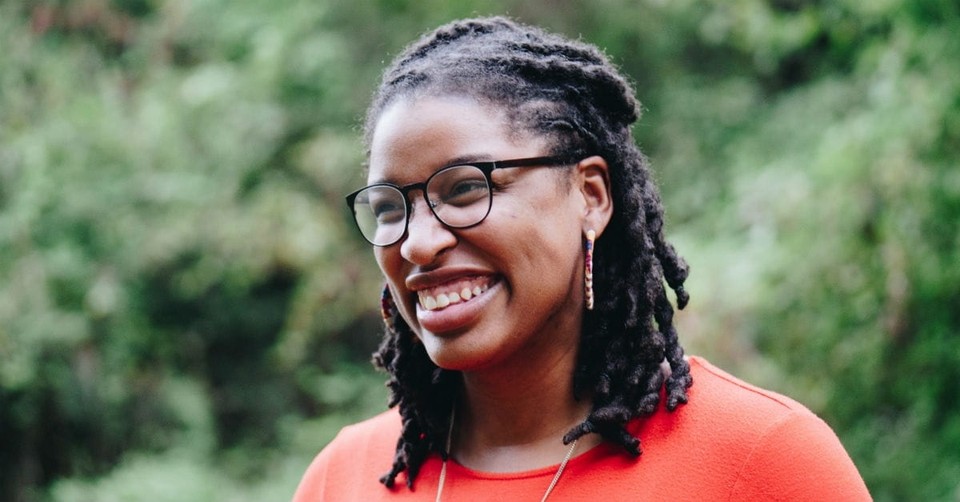6 Ways to Make Friends (Even if Your Church Doesn’t Have a Small Groups Ministry)

Few churches today exist without a plethora of outreaches, service projects, and missions trips— opportunities for you to "get your hands dirty," and "give back." With a desire to help believers grow in their faith and to connect with other like-minded individuals, teams are added to the staff to facilitate "small group" ministries.
It has become the role of the church staff to make sure that we have a good circle of friends. People are coming into church desiring connection — wanting to feel included and part of something bigger than themselves. The expectation is that the church will create it and people won't have to put any skin in the game of relationship-building.
The technology-driven culture has only contributed to this problem, as we are no longer sure how build community outside of a ministry that is specifically designed to do it. We settle for canned questions and DVD-teachings that are perfectly outlined to be completed in a tidy 2-hour session on Wednesday evenings each month.
Church members have become used to leaning on the pastoral staff to help them build friendships. But when those services aren’t available, or when it’s been six months without flourishing friendships, many tend to abandon ship and go back to church shopping— eager to find a place that will more adequately “meet their needs.” But what happens when we find ourselves at a church where there is an absence of a small group ministry? What happens when we find ourselves sitting across from the pastor as we describe our desire for thriving relationships only to hear the response, "That's great, how do you plan on building that?"
How do we establish community when the church hasn't done the work of placing us in small group?
Photo Credit: Unsplash

1. You start right where you are.
Most Christians can easily spout off verses about "loving our neighbors," but do we? Do you know the names of the people who live on your street, in your apartment building, or in your neighborhood? How many of them have been over for a BBQ, or even invited into your home? Do you know their story, or at the very least how long they've lived on the block? What have you done to get to know the people who already live in close proximity with you?
What about the person who sits at a desk near you at work, in your building, or who works in another part of your company? How many of your colleagues have you had coffee or lunch with? While you may not want to talk about work outside of the office, chances are you have other common ground.
Think about where else you already connect with people regularly? Perhaps it's the gym or the coffee shop that doubles as your "office" for many days of the week. Maybe it's your kid's school or sports facility, or where you take classes or shop regularly— any place where you already have mutual interests is a great place to build from.
Photo Credit: Unsplash/Vladislav Nikonov

2. Don’t be afraid to make the first move.
"We'll have to have you guys over for dinner," they said, smiling widely.
"Yeah, that sounds great," you answer genuinely.
"Ok, yeah, we'll put it on the calendar soon," they answer quickly, side-stepping your desire to close the deal.
"We're pretty open any night next week," you respond honestly, with a smile.
Conversations like this have become the norm in our culture paralyzed with a failure-to-commit, and it's annoying for anyone who's genuinely searching for “their people.” Instead of a real date penciled into the calendar, all you got was another round of vague comments and dashed hopes of making arrangements.
Chances are if you want the coffee date, the dinner party, or the follow-up to the introductory lunch meeting, you'll have to be the one to pull out your phone and lock in on a day and time. It may sound scary, but it’s worth the risk, and it’ll become easier the more you do it.
Photo Credit: Unsplash

"Give the relationship room to grow into something by keeping it free of expectations too early."
Building real friendships in person are great because you can't ignore the person standing in front of you like you can ignore a text, phone call, or email. And it often feels like dating because you want a relationship, but you may get rejected.
You may experience someone reluctantly making plans and then bailing on you the morning of your meeting — it happens to the best of us. Don't let that deter you. Some coffee dates will go so well that you and your new friend are suddenly busy arranging your children's marriages. Others may simply introduce you to a new group of friends or a new hobby. Don’t toss them aside if there aren’t sparks right away. Maybe during an outing with another couple, not everyone hit it off, but the husbands or wives, separately, might become great friends. Give the relationship room to grow into something by keeping it free of expectations too early.
Photo Credit: Unsplash/Dan Gold

3. Get out of your comfort zone.
Because we are creatures of habit, we tend to think that our friends need to be homogenous. They need to be in the same age and stage of life, their kids need to go to the same school, and we need to have similar hobbies and interests. But this is not only untrue, it’s also unhealthy.
While it may be practical for our closest friends to also be in the same season of life, it’s beneficial that we be in a relationship with those in different season. We all need people who are ahead of us in life to learn from their wisdom and experiences. And people with children can benefit from having single friends to mentor and learn from.
Your circle of friends don't have to have everything in common. Instead, be eager to grow various relationship with those who will support you in different aspects of your life: creatively, professionally, spiritually, relationally, physically.
Photo Credit: Unsplash/Farrel Nobel

4. Start something.
If you are passionate about something and eager to build community around that hobby or interest— start the club. Maybe you want to read books, get in shape, establish an outreach or ministry, or enjoy a mom's night out. Find someone else who is interested in that idea and go from there. When you involve others, it creates personal accountability and builds excitement.
You may not be the one to sustain it, but perhaps you're the one needed to get the idea off the ground. Don’t wait for someone at church to announce a new ministry— you launch it!
Photo Credit: Unsplash/Andi Rieger

5. Be the one to go one step deeper.
If you are hungry for an authentic relationship with people, then you’ll probably be the one to make the first move, get out of your comfort zone, and start something. Your courage is not only necessary to start a relationship, but also to take one step deeper for vulnerability to happen. It may not feel comfortable because it’s risky to share our hearts, fears, dreams, or failures with others. But the beautiful thing that happens when one person removes their mask is that others feel secure to do the same. People want to know that you are a safe person and that there is no shame in being real. You can show that you are trustworthy by being the first one to be vulnerable.
Ask one question that encourages others to go beyond the surface responses. Change up the routine, invite someone into your home instead of always meeting at a coffee shop, write a letter, or send an email instead of just sending a text. Show them with your words, your time, and your actions that you are ready for the relationship that everyone talks about wanting, but few are willing to put effort into building.

6. Recognize that not everyone will stick.
Perhaps you’re just the catalyst to bring new people together or to show them what real connection can look like. You don’t have to stay best friends forever; perhaps they will only be in your life for a short season. Maybe they need your support right now, and in another chapter of life, you'll be calling on them more frequently.
Sadly, because so many of us have grown up in the church-world of randomly selected small groups, we have forgotten how to build community organically. We tend to get all awkward instead of remembering that relationships take time.
Originally published May 17, 2018.








